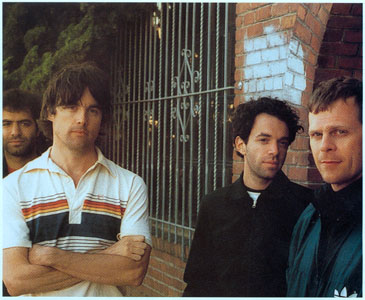SOMA
September, 2000

IDAHO
text and photo Aidin Vaziri
With the release of
After hitting what Martin describes as “rock bottom,”
Martin experienced his own dabblings in excess a few years later, while the band was working on its 1996 album, Three Sheets to the Wind. “That was one of the most insane years of my life,” he recalls. “We were going out every day, experiencing the Hollywood nightlife, and then we would show up to record, not having slept and feeling real horrible. I was foggy and reckless and selfish.” Shortly after the album came out, Martin decided to pull the plug on the band. A few months later, however, he changed his mind and went back to record the breakthrough album Forbidden EP. “That was the turning point for everything,” he says. “We got back to something that was a lot more pure.”
This year brings Hearts of Palm, an altogether more sublime offering from an admittedly more mature Martin. The songs retain the chord of melancholy that runs through all of Idaho’s work, but sound more chilling and devastating than ever, as Martin’s aching voice rises and falls over minor-key masterpieces like “To Be the One” and “Happy Times.”
“I finally realized I was looking for contentment from external things in life, when everything is inside of us,” Martin says. “We don’t have to search and grope for better relationships or more of this and more of that. I just started shedding a lot of the baggage that I didn’t realize was there. But I still have a million miles to go before I make the record I think I can make.”